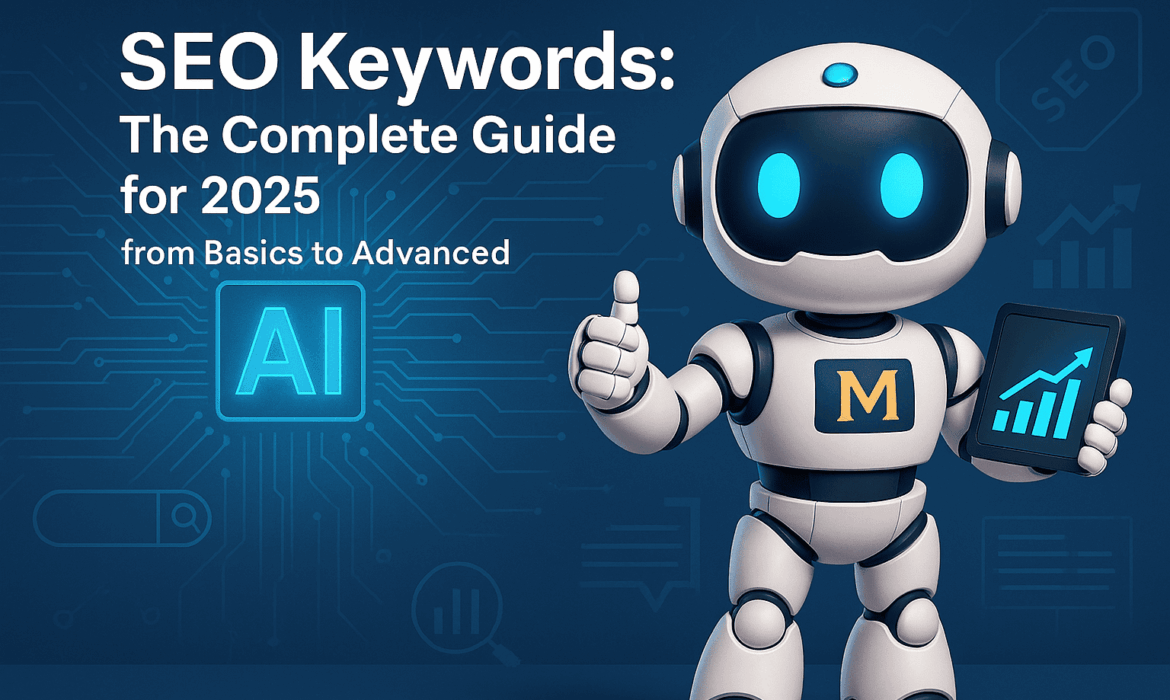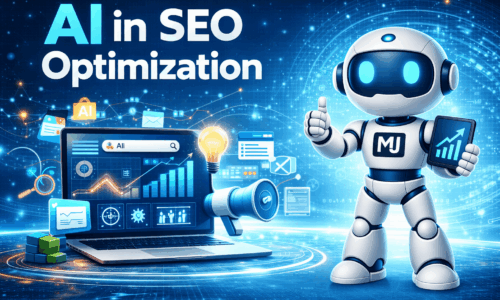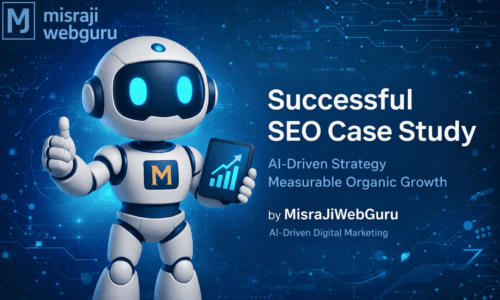
Why SEO Keywords Still Matter in 2025
“SEO Keywords are not just words. They are bridges—between what people search and what businesses deliver.”
SEO Keywords are the foundation of digital marketing. Without them, Google doesn’t know what your website is about, and your audience doesn’t find you.
But here’s the mistake I see many professionals make: they treat SEO keywords as a checklist—stuff them in titles, sprinkle them in blogs, and hope rankings follow.
In reality, keywords in 2025 are smarter, deeper, and more connected to user intent than ever before.
In this guide, I’ll walk you step by step—from the basics of SEO keywords to advanced strategies like keyword clustering, semantic SEO, and AI-driven keyword research.
What Are SEO Keywords?
“In SEO today, intent matters more than exact match.”

SEO Keywords are the words or phrases people type (or speak) into Google to find information, products, or services.
Examples:
- Short-tail keyword → “shoes”
- Long-tail keyword → “best running shoes for women 2025”
In 2025, keywords are no longer about just matching exact words. Google’s AI (Gemini, BERT) understands context. That means:
- “Best SEO tools” and “Top tools for SEO in 2025” are treated as the same intent.
Why SEO Keywords Are Important
If you’re a fresher or business owner wondering why keywords still matter, here’s why:
✔️ They help Google understand your content.
✔️ They connect your business with searchers.
✔️ They drive organic traffic without ad spend.
✔️ They build authority in your niche.
Example: A clinic ranking for “physiotherapist in Lucknow” will attract local patients directly searching for that service.
Types of SEO Keywords You Must Know
“If you only chase traffic keywords, you’ll get clicks. If you target intent keywords, you’ll get customers.”
Professionals often confuse types of keywords, so let’s break it down simply.
- Short-Tail Keywords
- 1–2 words.
- High traffic but high competition.
- Example: SEO, shoes, marketing.
- Long-Tail Keywords
- 3–5+ words.
- Lower competition, higher conversion.
- Example: best SEO strategy for small business 2025.
- LSI Keywords (Latent Semantic Indexing)
- Related words that strengthen context.
- Example: For “AI SEO”, LSI keywords could be Google AI Overview SEO, answer engine optimization, generative SEO.
- Transactional Keywords
- Used when users are ready to buy.
- Example: buy SEO tools subscription.
- Informational Keywords
- Used for learning.
- Example: what is SEO keyword research.
SEO Keyword Research (Step by Step)
“Don’t collect keywords. Organize them into clusters that build authority.”
Here’s a roadmap you can follow:
- Start with Seed Keywords
- Basic terms related to your business.
- Example: SEO, branding, AI marketing.
- Use Tools for Research
- Free: Google Keyword Planner, Ubersuggest.
- Paid: Ahrefs, SEMrush, KeywordTool.io.
- Check Search Intent
- Ask: Does this keyword reflect learning, buying, or comparing?
- Analyze Competition
- Look at the top 10 results—can you realistically compete?
- Cluster Keywords
- Group related ones into a topic.
- Example Cluster: AI SEO, answer engine optimization, Google AI Overview SEO.
How to Use SEO Keywords (Keyword Optimization)
“Keywords are seasoning. Too little makes food bland. Too much makes it inedible.”
Finding keywords is step one. Using them correctly is where most fail.
✅ Place main keyword in:
- Title (H1)
- First 100 words
- At least 1 H2 heading
- Meta description
- URL (slug)
✅ Use secondary keywords in:
- Subheadings (H2, H3)
- Image alt tags
- FAQs
✅ Avoid keyword stuffing. Write naturally—Google AI is smart enough to understand synonyms.
Advanced SEO Keyword Strategies for 2025
“In 2025, SEO keywords are not about matching words. They’re about matching conversations.”
If you’re a professional, this is where the game changes.
- Keyword Clustering
- Group similar keywords → one blog ranks for many.
- Semantic SEO
- Write with context. Include synonyms, related queries, and answers.
- Answer Engine Optimization (AEO)
- Structure content as Q&A → to appear in Google AI Overview.
- Generative SEO (GEO)
- Optimize for AI-written answers. Write conversationally, with structured data.
- Voice Search Keywords
- People speak differently → “near me”, “best tool for…”.
Story: How Keywords Transformed a Business
“Traffic means nothing if it doesn’t convert. Right keywords bring the right people.”
I once worked with a small e-commerce store. They ranked for generic keywords like “bags” but had no sales.
We restructured their keyword strategy:
- Focused on long-tail transactional queries like “affordable leather laptop bags India 2025.”
- Added FAQs targeting buyer questions.
- Optimized with schema markup.
Within 3 months, their traffic grew 3x. But more importantly—their sales doubled.
Common Mistakes in SEO Keywords
❌ Keyword stuffing.
❌ Targeting only high-volume keywords.
❌ Ignoring intent.
❌ Not updating keyword strategy.
10 FAQs on SEO Keywords
- What are SEO keywords?
Words/phrases that connect user searches with your content. - Why are SEO keywords important?
They drive traffic, visibility, and conversions. - What’s the difference between short-tail and long-tail keywords?
Short-tail = broad traffic. Long-tail = targeted traffic + higher conversions. - What is keyword clustering?
Grouping related keywords to build topical authority. - How often should I use keywords?
Enough to be natural—avoid stuffing. - What tools are best for SEO keyword research?
Ahrefs, SEMrush, Ubersuggest, KeywordTool.io. - What is semantic SEO?
Optimizing content with context + related words for AI understanding. - Do keywords still matter with AI Overview?
Yes, but intent and structure matter more. - Can small businesses rank with SEO keywords?
Yes—by targeting long-tail, local, and intent keywords. - What’s the future of SEO keywords?
They’ll evolve into search intent keywords → conversational, AI-friendly, and context-rich.
Conclusion: My Message to Professionals and Learners
If you’re new to SEO, start simple: learn what SEO keywords are, how to research them, and how to use them naturally.
If you’re a professional, go deeper: embrace clustering, semantic SEO, AEO, and GEO.
At MisraJiWebGuru, I teach one principle: “SEO keywords are not shortcuts. They are strategies. Used wisely, they don’t just bring traffic—they bring trust.”
And that is how you win in 2025.



